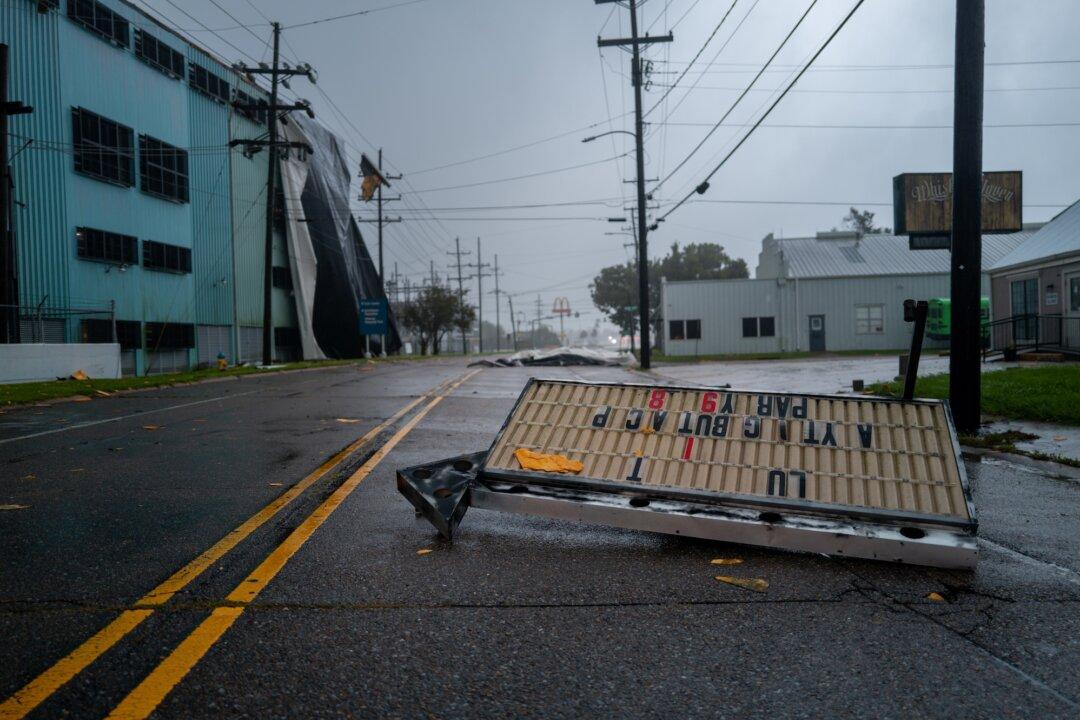The Internal Revenue Service (IRS) has announced it is offering tax relief to individuals and businesses across the state of Louisiana in response to the devastation caused by Hurricane Francine.
The hurricane came ashore in southern Louisiana on Sept. 11, pounding parts of the state with heavy rains and gusty winds, leaving some 250,000 homes and businesses without power and causing extensive damage and flooding.





